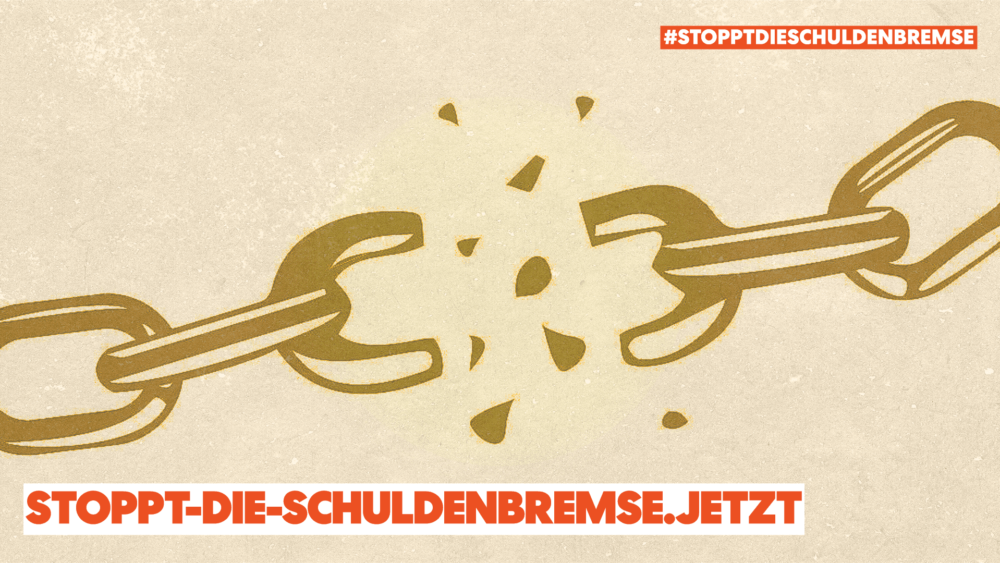The Debt Brake is a brake on investment and prosperity. In the current crisis situation, it also prevents real relief for the people of Germany, and by extension, Europe. That is why it must be stopped.
Germany, autumn 2022: While prices seem to be rising unchecked and the social crisis continues to worsen, the Bundestag (the federal parliament of Germany) is planning the budget for the coming year. Money is sought for relief measures, fighting inflation and urgently needed investments in critical areas such as climate protection, health care, education and digitisation.
But there is a great risk of important projects being prevented, because the federal government is stubbornly sticking to a rule that artificially limits government spending: the so-called ‘Debt Brake’. Instead of suspending the Debt Brake as was the case in the past three budget periods, the ‘traffic light coalition’ (comprised of the Social Democrats, the Greens and the neoliberal Free Democrats), in its draft budget, insists on adhering to this pernicious rule – at the worst possible moment.
We cannot simply pretend that we live in a time before COVID-19, before Russia’s attack on Ukraine, before the energy shortage or before the climate crisis. To counteract impoverishment and economic decline, the federal government needs to spend at a level that exceeds current tax revenues. That is why DiEM25 is today calling for a new campaign to stop the reintroduction of the Debt Brake. We say #StopTheDebtBreak!
Go to our campaign website
The Debt Brake was introduced into the German constitution in the year 2009. The federal, state and municipal governments are practically not allowed to take on new debts and are obliged to balance their budgets through tax revenues. Austerity programmes to pay off debts and shadow budgets are the result. Instead of securing the ability of state institutions to act in the long term, the Debt Brake has exactly the opposite effect. As a self-imposed, purely fictitious shortage of public funds, the Debt Brake plays off the interests of citizens against each other and drives the division of society.
This is why DiEM25 is launching #StopTheDebtBreak, a civil society campaign against the reactivation of this destructive rule. In the coming weeks, #StopTheDebtBrake activists will critically comment on the budget debates in the Bundestag and oppose the federal government’s plans for spending cuts as well as anti-social and anti-climate fiscal policies, using decentralised actions as part of the campaign.
Part of #StopTheDebtBreak is a petition that can be signed by everyone. Among the first signatories are well-known personalities such as Prof. Gerhard Trabert, Dr. Rahel Süß, Fabio De Masi, Prof. Yanis Varoufakis and many more. Join them and sign the petition now!
We are looking forward to a lot of organising, mobilsing and convincing in the weeks ahead. Updates will be posted regularly on DiEM25’s German-language social media channels, so follow us there if you have not done so already. Interested in getting involved? Just email kontakt@stoppt-die-schuldenbremse.jetzt and become part of the campaign team!
Twitter
Instagram
Facebook
YouTube
Do you want to be informed of DiEM25's actions? Sign up here















